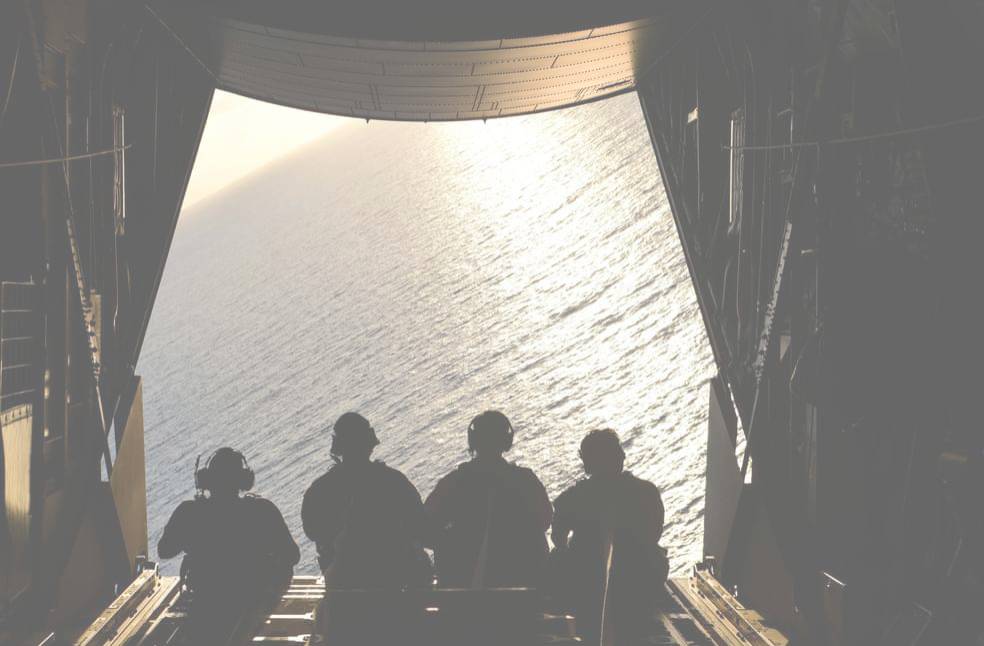Virginia: Amid growing unease in the Middle East, US has stepped up its military presence by dispatching a guided missile submarine and expediting the arrival of an aircraft carrier, as Defense Secretary Lloyd Austin seeks to counter potential threats and prevent further escalation. This follows the recent assassinations of prominent Hezbollah and Hamas leaders.
Iran is being closely observed for any indication of when and how it will react to the 31 July assassination of Ismail Haniyeh, the political leader of Hamas, in Tehran. Iran has threatened to punish Israel for Haniyeh’s death on Iranian soil, holding them accountable. Although Israel has not responded, it is widely assumed to be responsible.
On Sunday, the Pentagon announced that Austin had sent the USS Georgia guided missile submarine to the area. Additionally, the carrier strike group of the USS Abraham Lincoln, transporting F-35C fighter jets, has been instructed to speed up its approach. The ship had already departed to replace another US vessel in the area.
Meanwhile, Hezbollah, the Iranian-backed political movement and militia in Lebanon, may launch another attack on Israel. The group has vowed to retaliate against Israel for killing senior commander Fuad Shukr in the southern suburbs of Beirut, just hours before Haniyeh’s death.

Lufthansa, the German airline, announced on Monday that it was halting flights to Tel Aviv, Israel; Beirut, Lebanon; Amman, Jordan; Erbil, Iraq; and Tehran, Iran, until 21 August, citing its current security analysis. Swiss Air has also cancelled its flights to Beirut and Tel Aviv during the same period. According to AFP, Air France has decided to continue its suspension of flights to Beirut, which began on 29 July. Other airlines, such as AirBaltic and EasyJet, have previously announced they were suspending flights to the region.
In the past, Iran has used hundreds of airborne drones and missiles to attack Israel in response to a strike on its consulate in Syria in April. The Biden administration has urged for discussions to resume and believes that the best approach to reduce tensions in the area would be a ceasefire in Gaza that releases Israeli hostages. However, in response to US efforts to revive ceasefire negotiations, Hamas stated on Sunday night that Israel must be compelled to implement the agreement currently on the table. Resuming ceasefire negotiations over the Gaza crisis, according to Hamas, should be predicated on its prior stance rather than initiating fresh rounds of talks. Nonetheless, the remark suggested a general willingness to participate.
In the past, Washington has held Hamas accountable for the breakdown of talks. However, according to Israeli media sources, Benjamin Netanyahu, the Prime Minister of Israel, is increasingly being held partially accountable by the US, as he is alleged to have placated far-right coalition members who oppose a deal. Bezalel Smotrich, the Finance Minister, was one of these coalition leaders, and last week was publicly criticised by the White House for the first time. Rejecting the US demand for ceasefire talks, Smotrich had encouraged Israel to do so, arguing that doing so would be a capitulation to Hamas. John Kirby, a spokesperson for national security at the White House, called Smotrich “dead wrong” and accused him of fabricating information.
Leaders of the UK, France, and Germany have also emphasised the need for the restart of ceasefire negotiations. The joint statement from German Chancellor Olaf Scholz, French President Emmanuel Macron, and UK Prime Minister Sir Keir Starmer stated, “We agree that there can be no further delay. We will stop at nothing to ease tensions and find a way to bring about stability. We have been working with all parties to prevent escalation.”



